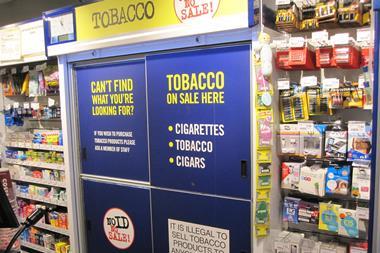Government urged to consider track and trace impact on stores

The Association of Convenience Stores (ACS) is urging the government to consider the impact of new Track and Trace regulations on tobacco retailers
ALREADY HAVE A REGISTERED USER ACCOUNT? PLEASE LOG IN HERE
To read the full story join the ConvenienceStore.co.uk community today!
Registration is quick and easy and provides access to:
- Unlimited ConvenienceStore.co.uk articles
- Our great range of newsletters
- Content you’ve saved for later via the ‘my library’ feature
And much more…





















